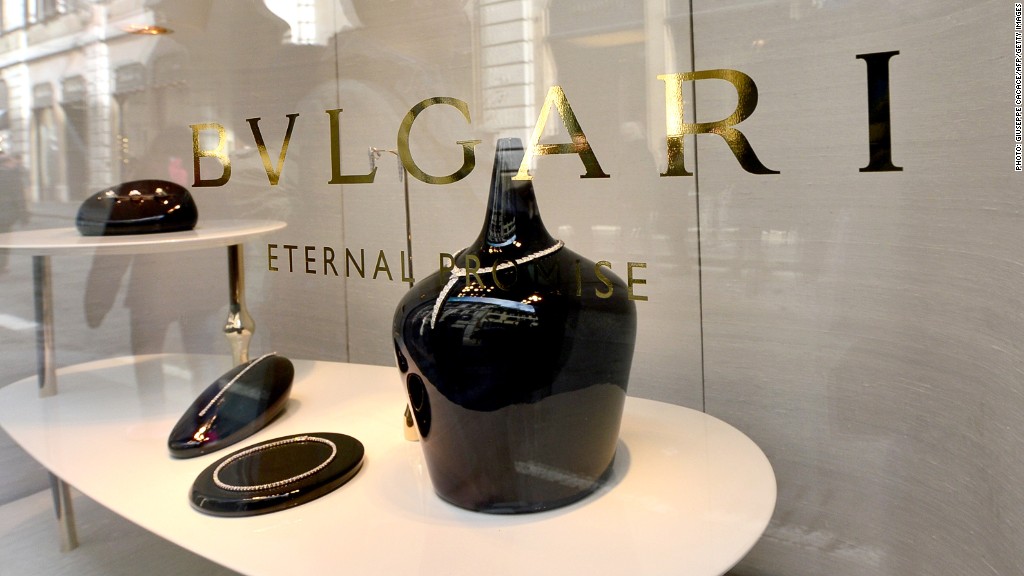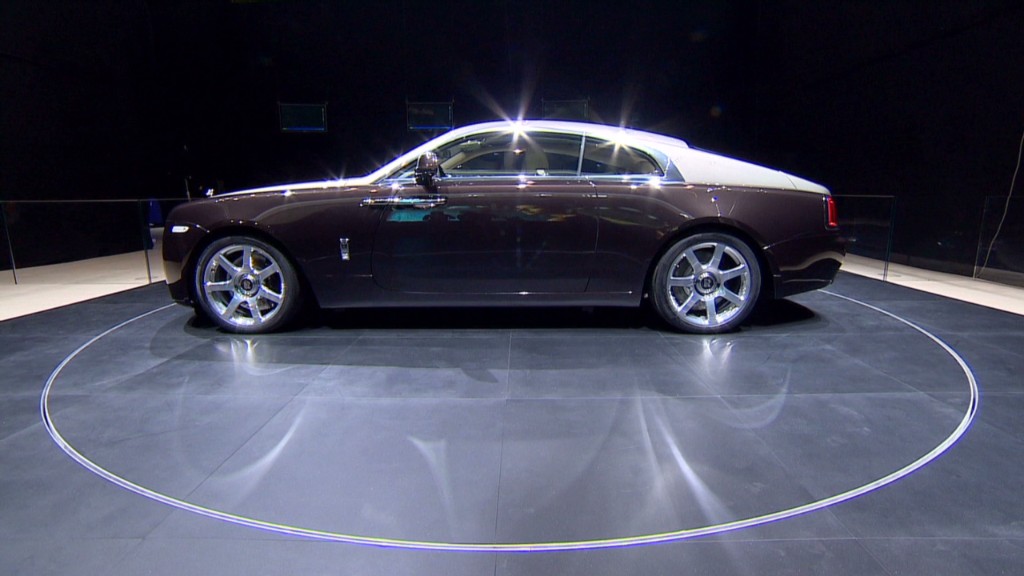
Italian police have seized assets worth more than €46 million ($60 million) from executives linked to luxury goods group Bulgari over alleged tax evasion.
Financial police in Rome said Thursday they believed Bulgari had established companies in the Netherlands and Ireland with the sole purpose of attempting to hide revenue amounting to about €3 billion ($4 billion) between 2006 and 2011.
Dividends which escaped taxation during the period totaled €293 million, meaning the group had managed to avoid taxes of at least €46 million, the police said in a statement.
The Bulgari brothers Paolo and Nicola, the head of LVMH's watches and jewelry division Francesco Trapani and a senior Bulgari director Maurizio Valentini were under investigation, according to an Italian prosecutor.
Buglari, which was bought by French luxury group LVMH Moet Hennessy Louis Vuitton SA (LVMHF) in 2011, confirmed that some senior executives and directors had been served with an "order for precautionary seizure" but did not mention individuals by name in its statement.

It said the claims were unfounded and it was confident it would be able to prove its innocence.
"The foreign companies at issue... are real and genuine companies performing an indisputable strategic role for the group and employing about 300 employees," Bulgari said.
Bank accounts, life insurance policies, shares, as well as several properties including prime real estate in the center of Rome were seized, the police said.
Related: Italy's credit rating downgraded
European governments are closing tax loopholes and increasing efforts to identify corporate tax evaders as they look to find sources of revenue to bring down budget deficits in the face of prolonged economic stagnation.
British Prime Minister David Cameron said earlier this year he would use the U.K.'s chairmanship of the G8 group of leading industrial nations to tackle tax avoidance by businesses.
Cameron said there were many legitimate ways for individuals and companies to minimize their tax burden, but some businesses had gone way too far to avoid paying their fair share at a cost to the wider economy and other companies.
Revelations that big multinational companies like Starbucks (SBUX), Google (GOOG) and Amazon (AMZN)were paying very little, if any tax in the U.K, prompted a public outcry last year.
Starbucks responded by saying it would no longer claim tax deductions for royalties and other inter-company payments, including interest on inter-company loans, adding about $16 million to its tax bill.
